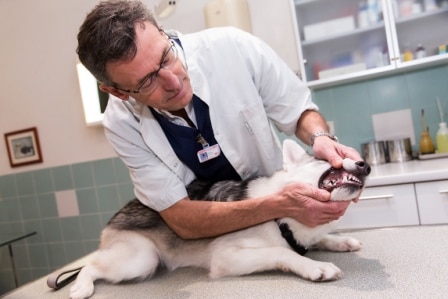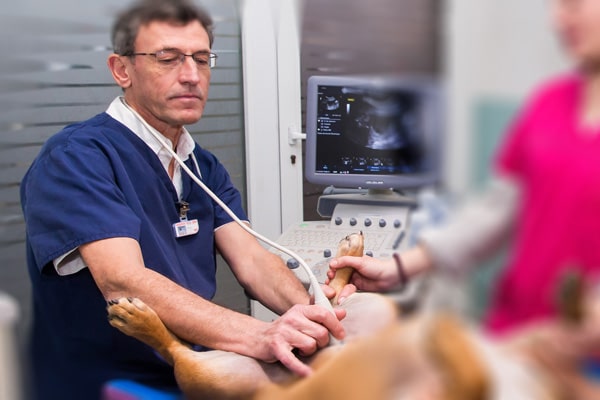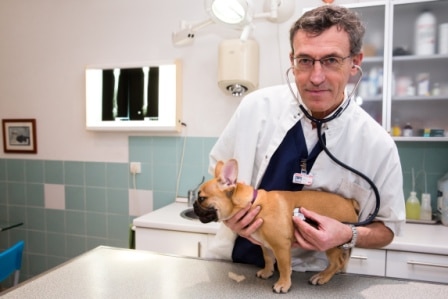NEWS (in French)
News from the clinic, articles related to the season … We regularly publish useful information on our blog.
EMERGENCIES
Outside opening hours, our emergencies are provided by the Clausonnes Veterinary Clinic, 900 route de la Valmasque at 06560 Valbonne.
OUR TEAM
OUR SERVICES

ANNUAL HEALTH VISIT
- Read more
The annual health visit is a must for any responsible chef. For our companions, the years pass faster. Do not we say that one year for a human being corresponds to seven years for a dog? During each annual health visit, the veterinarian, very involved in preventive medicine:
- performs a clinical examination
- early search for possible progressive diseases
- update vaccines
- update administrative documents
- make a point with you about behavior, diet, hygiene

PRESCRIPTION
- Read more
In most drug families, we have a range adapted to each animal species. If your pet’s treatment is available, you can take it right away at the clinic. Note: retail delivery is governed by Article L.5143-2 of the Public Health Code. This law specifies that the veterinarian is authorized to deliver drugs only for the animals for which he personally provides care. We can not keep open pharmacies or deliver regulated drugs outside visits.

SURGERY
- Read more
We are equipped with an operating room that allows us to perform routine surgeries, such as sterilization or descaling, but also more delicate procedures that require advanced skills and equipment. Our block is equipped in particular:
- a gas anesthesia machine, to accurately dose the amounts of anesthetic and thus, to gain efficiency and safety.
- a cardiac and respiratory monitoring device
- an electrocardiograph
- a reanimation device
We are particularly committed to the safety of your companions and the prevention of pain, for which we have set up a specific protocol. The animals, at the end of the operation, are placed in our hospitalization area, where they wake up under the supervision of veterinarians and nurses.

HOSPITALIZATION
- Read more
Operated animals are kept in the kennel to ensure their safe awakening and recovery.
The kennel is kept at a temperature of 20 ° to ensure the animals awake in good conditions.
Veterinarians and assistants provide care and wake-up monitoring.

BLOOD TESTS
- Read more
If the state of health of your companion requires it, we can realize on the spot and immediately a blood test.
Thus, the diagnosis can be established without you having to return or make an appointment in an analysis laboratory.
A blood test, and fifteen to twenty minutes later, we give you the results!

DENTISTRY
- Read more
Dogs and cats have specific problems that can affect their health.
Not very subject to cavities, they are however very frequently affected by scale.
This is why an annual oral check-up is essential and preventive measures must be taken on this occasion.

OPHTALMOLOGY
- Read more
Veterinary ophthalmology has made great progress and we attach great importance to it.
We carry out the most frequent examinations and interventions, and in complex cases, will be able to refer you to a specialist.

ORL
- Read more
Ears, respiratory system: we carry out a check on the occasion of each annual health visit.

ULTRASOUND
- Read more
Ultrasound can be used to observe soft tissue (as opposed to the skeleton). It allows us to follow pregnancy, diagnosis of the urogenital tract, digestive system and heart.

X-RAY
- Read more
We are equipped with a digital radiography system that allows us to obtain immediate and high quality results. Thanks to digital technology, we can also easily integrate snapshots into your pet’s file or send them to specialists for diagnostic complements.

MONITORING SENIOR PETS
- Read more
Dogs and cats are aging faster than us. In a year, we usually say that they age as much as we do in 6 or 7 years. That is why we carry out specific health checks in order to diagnose as early as possible the diseases of the aging animal. We can, thanks to this assessment, treat these diseases as soon as possible and slow down their evolution. Your pet then gains in quality of life and you can enjoy your relationship for a long time.
RECENT NEWS (In french)
Le coup de chaleur est un des fréquents motifs d’urgences vétérinaires en été. Le risque mortel est réel et certaines erreurs doivent absolument être évitées…
Entre le 1er mai et le 31 août 2022, la SPA a recueilli 16 457 animaux abandonnés, parmi lesquels 11 268 chats, 4 302 chiens et 851 NAC (nouveaux animaux de compagnie). On ne le répétera jamais assez : avoir un animal de compagnie, c’est prévoir de subvenir à ses besoins et garantir son bien-être, partout et tout le temps… Y compris pendant les congés estivaux.
OPENING HOURS
CONTACT
Antibes les Pins Vet clinic
55 Avenue de Cannes,
06160 Antibes Juan-les-Pins









